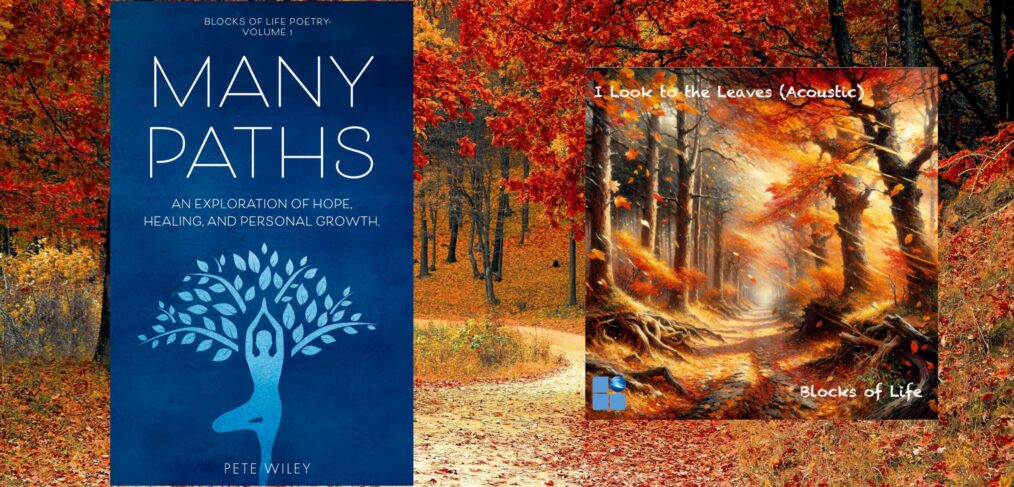Each of us has elements in our lives that are so precious to us that it’s hard to come to terms with their loss. You might not want to envision life without them—it’s unthinkable. But at the same time, nothing in our lives is permanent. These two competing ideas can be hard to reconcile. What is important to you may be a child, a relationship, or security as a family. There are some things that you don’t want to ever see threatened or come to an end. But as we each have to face death, we also have to face the fact that nothing at all is going to last forever.
Today, I am excited to announce the release of my first book of poetry, Many Paths: An Exploration of Hope, Healing, and Personal Growth.
Describing a meaningful and fulfilling life in words is challenging. Although relating the elements of our lives is useful and allows for a practical and detailed understanding, to delve deeper into the emotional aspects of our triumphs and challenges, our passions and pursuits, we need a more creative and nuanced medium. Poetry and music express these ideas in ways that a description could not—in ways that resonate with the reader emotionally and genuinely. I have explored my emotional journey with music and poetry for as long as I can remember, and nothing can compare to these mediums in terms of expressing emotions. Starting about five years ago, I started to write poetry and music based on the ideas in these blog posts and it was the answer I needed to make these ideas whole.
I have taken one of the poems from the book and put it to music in I Look to the Leaves. Although all of my songs contain lyrics, this is the first that began as a poem and became a song.
Most people have a vision for who they are and how they live. This includes how they interact with others, how much they eat and drink, exercise, and sleep patterns. It also might include how much time they devote to their family, job, or passions. You won’t always live your life in a way that is entirely consistent with that vision—no one can—but how you react to missteps is key to making your vision realistic. If you constantly berate yourself over something you did or didn’t do, you’re making it more than it should be and denying part of who you are. If you incorporate imperfection into your vision, you will be much more likely to realize it.
It’s hard to be away from those we love. We may feel longing or loss. We may even think that we aren’t a significant part of the other person’s life—that you’re not on their mind or in their heart anymore. While these feelings are natural, it’s important not to let them diminish the fact that you are your own person—independent and strong. It may not always feel that way, but each of us has an independent person inside us, needing nurturing and care—not from another person, but from ourselves. If you are always with another person, you may rely heavily on that other person for your identity and emotional state, which can lead to an unhealthy reliance on that person. This can become chronic and damaging. Some couples or friends spend a lot of time together in very healthy ways. But if you become emotionally dependent on the other person, that’s a problem.
No one in your life has to be there. This concept can be challenging for some to comprehend, and cutting some people, such as family, out of your life can seem impossible and extreme. But everyone has had experiences with toxic people—people who are poison to them. These people are not just frustrating or irritating. They are toxic—they poison your mental, emotional, and physical well-being. You may feel that you have a responsibility toward them. In some cases, that’s true—but it’s essential to examine the context for those responsibilities and explore ways to remove them, partially or entirely, from your life. You may still care about them and want them to be happy, but they can no longer be in your life.





